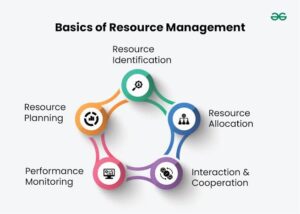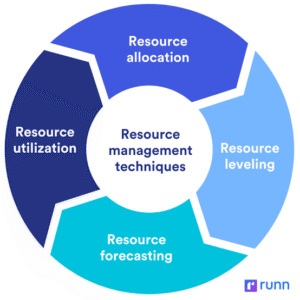Back to: Environmental Biology 300 Level
Welcome to class!
Hello brilliant mind! Have you ever turned on a tap and no water came out, or walked through dry, cracked farmland during the dry season? Maybe you’ve seen once-rich soil now barely producing crops? These experiences reflect why managing our natural resources—especially water and soil—is not just important, but essential for life, food, and the future. Today’s class on Resource Management: Water and Soil will show you how these resources work together to sustain ecosystems and how we must care for them wisely.
Resource Management: Water & Soil
Understanding Water and Soil as Natural Resources
Water and soil are two of the most important natural resources we have. Water is vital for drinking, agriculture, sanitation, and industry. Soil is the foundation of farming, forestry, and plant life. In Nigeria, millions depend on rivers, rainfall, and groundwater for water; and on fertile soil for growing cassava, maize, rice, and vegetables.

When these resources are misused or polluted, communities suffer—food becomes scarce, waterborne diseases spread, and livelihoods are lost. That’s why effective management is key.
Water Resource Management
This refers to planning, developing, and using water resources in a sustainable way. In Nigeria, water comes from surface sources like rivers (e.g. Niger, Benue), lakes, and underground aquifers. However, these sources are often under pressure from pollution, overuse, and climate change.
Key water management strategies include:
Rainwater harvesting – Collecting and storing rainwater for future use.
Drip irrigation – Conserving water on farms by delivering it directly to plant roots.

Water treatment plants – Ensuring safe, clean water for drinking and domestic use.
Protecting watersheds – Keeping forests and wetlands healthy so they can store and filter water naturally.
A practical example is the Mairuwa Dam in Katsina State, used for irrigation and water supply. With proper management, it supports farming communities all year round.
Soil Resource Management
Soil supports crops, filters water, and provides nutrients for plants. In Nigeria, poor farming practices, erosion, deforestation, and overgrazing are reducing soil fertility.
Ways to manage soil include:
Crop rotation – Alternating crops each season to maintain nutrients in the soil.
Composting – Adding organic waste to soil to improve its structure and fertility.
Afforestation – Planting trees to prevent erosion and improve soil cover.
Terracing – Building steps on slopes to reduce erosion and surface runoff.
In the Middle Belt region, farmers are using organic manure and cover crops to restore depleted soil—boosting yields and saving the land for future generations.

Why Resource Management Matters
Without clean water and fertile soil, life cannot thrive. Poor management leads to desertification in the North, flooding in the South, and food insecurity nationwide. Managing water and soil protects biodiversity, boosts agriculture, supports health, and strengthens national development.
Summary
- Water and soil are vital natural resources needed for survival, agriculture, and environmental health.
- Water resource management involves conserving and using water wisely through methods like rainwater harvesting and irrigation.
- Soil resource management includes practices like crop rotation, composting, and afforestation.
- Mismanagement of these resources leads to erosion, pollution, poor health, and hunger.
- Sustainable management is essential for environmental stability and national progress.
Evaluation
- What are two reasons why water and soil are important natural resources?
- List three methods used in water resource management.
- Mention two practices that help maintain healthy soil.
- Explain the effects of poor water and soil management in Nigeria.
You’ve done excellently, as always! By learning how to care for our water and soil, you’re gaining the power to protect Nigeria’s future—ensuring our farms stay productive and our rivers run clean. Keep shining bright, and remember, Afrilearn is right here with you, every step of the way!
